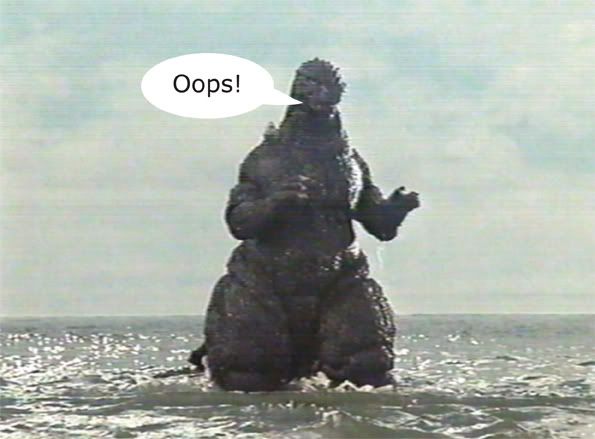- Joined
- Aug 7, 2001
- Messages
- 54,631
New cable cut compounds net woes
A submarine cable in the Middle East has been snapped, adding to global net problems caused by breaks in two lines under the Mediterranean on Wednesday.
The Falcon cable, owned by a firm that operates one of the previously damaged cables, was snapped on Friday morning.
The cause of the latest break has not been confirmed but a repair ship has been deployed, said owner Flag Telecom.
Following the earlier break internet services were severely disrupted in Egypt, the Middle East and India.
There was disruption to 70% of the nationwide internet network in Egypt on Wednesday, while India suffered up to 60% disruption.
Flag Telecom said a repair ship was expected to arrive at the site of the first break - 8.3km from Alexandria in Egypt - on 5 February, with repair work expected to take a week.
A repair ship deployed to the second break - 56km from Dubai - was expected to arrive at the site in the "next few days", the firm said.
Web returns
The first cable - the Fiber-Optic Link Around the Globe (FLAG) - was cut at 0800 on 30 January, the firm said.
A second cable thought to lie alongside it - SEA-ME-WE 4, or the South East Asia-Middle East-West Europe 4 cable - was also split.
FLAG is a 28,000km (17,400 mile) long submarine communications cable that links Australia and Japan with Europe via India and the Middle East.
SEA-ME-WE 4 is a submarine cable linking South East Asia to Europe via the Indian subcontinent and the Middle East.
The two cable cuts meant that the only cable in service connecting Europe to the Middle East via Egypt was the older Sea-M-We 3 system, according to research firm TeleGeography.
The firm said the cuts reduced the amount of available capacity on the stretch of network between India and Europe by 75% percent.
As a result, carriers in Egypt and the Middle East re-routed their European traffic around the globe, through South East Asia and across the Pacific and Atlantic oceans.
The cause of the break has still not been confirmed. The third break is unlikely to disrupt commerce in the region as many business are closed on Fridays.
Initial reports suggested that it could have been snapped by a ship's anchor.
Internet service providers said they expected India's to be back to about 80% of its usual speed by the end of Friday.
In Egypt Minister of Communications and Information Technology Tarek Kamil said he expected to be at the same capacity within two days.
"However, it's not before ten days until the internet service returns to its normal performance," Kamil told the state Al-Ahram newspaper.
http://news.bbc.co.uk/1/hi/technology/7222536.stm
Once is happenstance; twice is coincidence; three times is enemy action...
A submarine cable in the Middle East has been snapped, adding to global net problems caused by breaks in two lines under the Mediterranean on Wednesday.
The Falcon cable, owned by a firm that operates one of the previously damaged cables, was snapped on Friday morning.
The cause of the latest break has not been confirmed but a repair ship has been deployed, said owner Flag Telecom.
Following the earlier break internet services were severely disrupted in Egypt, the Middle East and India.
There was disruption to 70% of the nationwide internet network in Egypt on Wednesday, while India suffered up to 60% disruption.
Flag Telecom said a repair ship was expected to arrive at the site of the first break - 8.3km from Alexandria in Egypt - on 5 February, with repair work expected to take a week.
A repair ship deployed to the second break - 56km from Dubai - was expected to arrive at the site in the "next few days", the firm said.
Web returns
The first cable - the Fiber-Optic Link Around the Globe (FLAG) - was cut at 0800 on 30 January, the firm said.
A second cable thought to lie alongside it - SEA-ME-WE 4, or the South East Asia-Middle East-West Europe 4 cable - was also split.
FLAG is a 28,000km (17,400 mile) long submarine communications cable that links Australia and Japan with Europe via India and the Middle East.
SEA-ME-WE 4 is a submarine cable linking South East Asia to Europe via the Indian subcontinent and the Middle East.
The two cable cuts meant that the only cable in service connecting Europe to the Middle East via Egypt was the older Sea-M-We 3 system, according to research firm TeleGeography.
The firm said the cuts reduced the amount of available capacity on the stretch of network between India and Europe by 75% percent.
As a result, carriers in Egypt and the Middle East re-routed their European traffic around the globe, through South East Asia and across the Pacific and Atlantic oceans.
The cause of the break has still not been confirmed. The third break is unlikely to disrupt commerce in the region as many business are closed on Fridays.
Initial reports suggested that it could have been snapped by a ship's anchor.
Internet service providers said they expected India's to be back to about 80% of its usual speed by the end of Friday.
In Egypt Minister of Communications and Information Technology Tarek Kamil said he expected to be at the same capacity within two days.
"However, it's not before ten days until the internet service returns to its normal performance," Kamil told the state Al-Ahram newspaper.
http://news.bbc.co.uk/1/hi/technology/7222536.stm
Once is happenstance; twice is coincidence; three times is enemy action...





